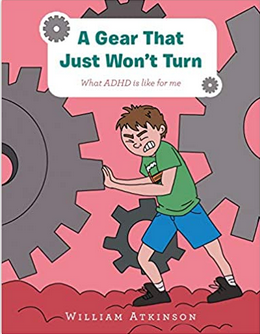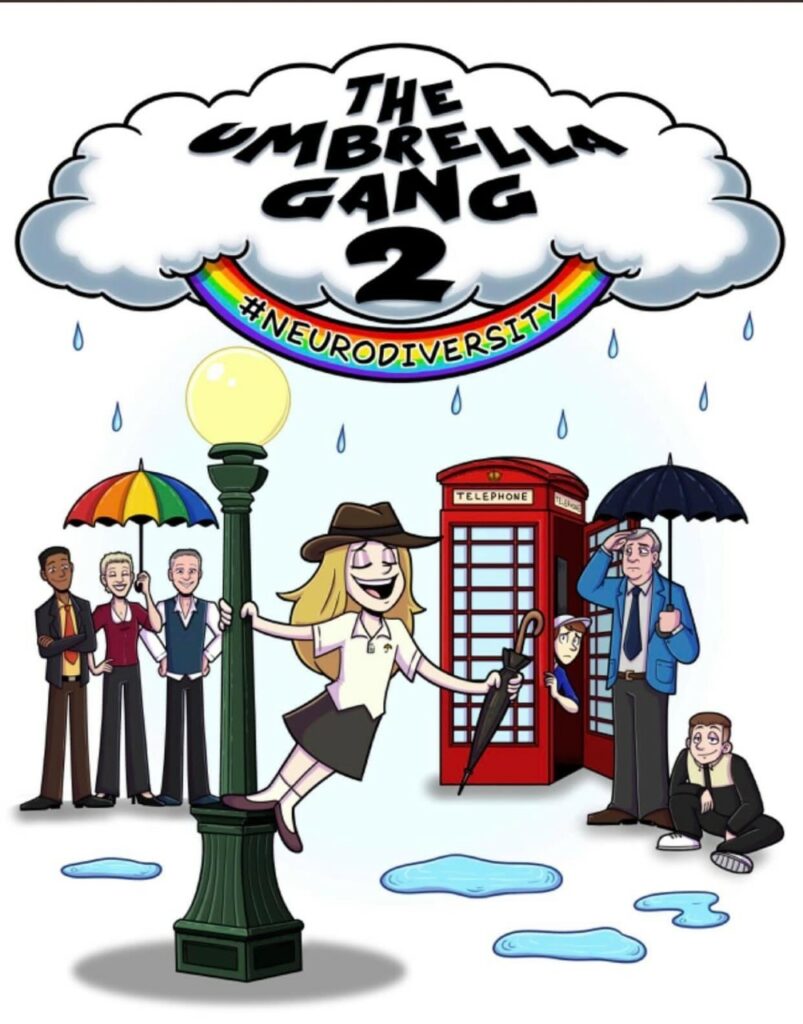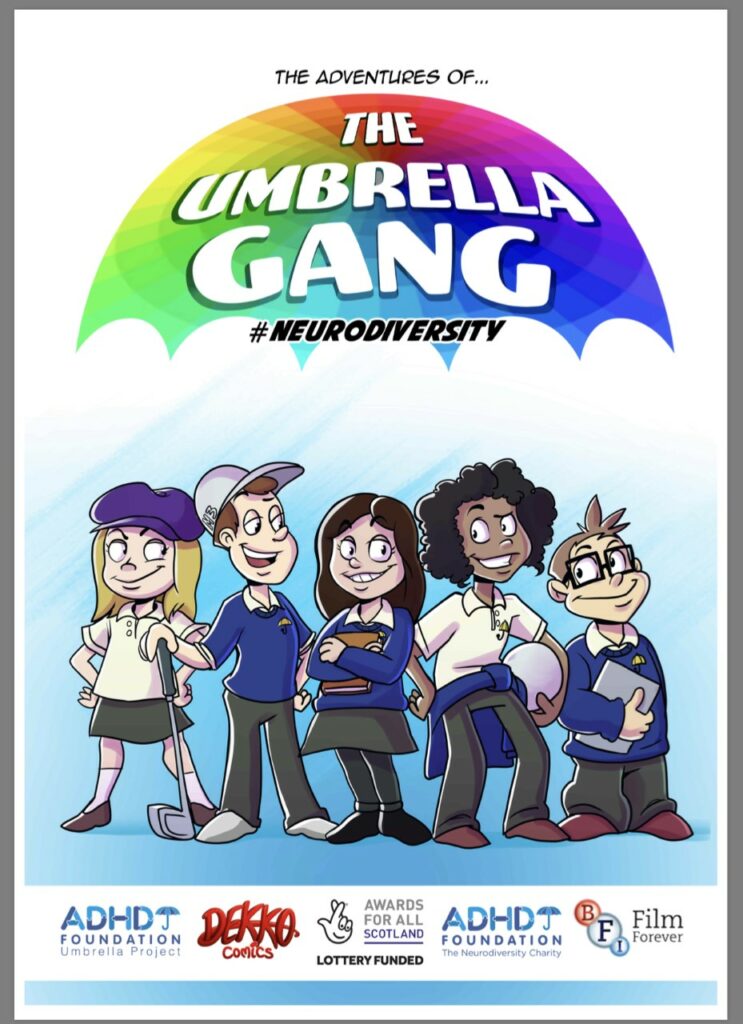I am pleased to share my thoughts with you for ADHD Awareness Month. As a child, I didn’t know I had ADHD, and because I was academically gifted, I could mask my short-term memory difficulties. I was a grade-A student, but I had to find strategies to help me with schoolwork as I easily forgot what I had learned in the previous lesson. Despite this, throughout primary school, I developed a love of reading fiction and devoured books. My parents were always telling me off because they would find me late at night still awake with my torch reading my latest Famous Five or Secret Seven by Enid Blyton, my favourite author as a child.
I still love reading fiction but, too often, I spend my evenings reading policy documents and research papers, leaving little time for physical books. Now, I use talking books more and I am currently listening to Mythos by Stephen Fry. I have quite eclectic tastes when it comes to reading; easy-to-read pacy thrillers help me switch off from work and become immersed in another world. I love historical thrillers: Mary Renault, one of my favourite authors, writes beautifully about ancient Greece.
I have just finished reading the final book in a series by Carlos Ruiz Zafron. The first time I read his Shadow of the Wind, I had to read it over again immediately. Winter in Madrid by C.J Sansom is another favourite and perhaps less well known than his The Shardlake Series about King Henry VIII and the Tudors. I must also confess I queued outside the bookshop for the final instalment of the Harry Potter books – somewhat embarrassed that I was one of the oldest people in the queue!
Neurodiversity is a common human trait
As the ADHD Foundation Neurodiversity Charity CEO, I try to champion a strength-based approach to learning. I don’t see ADHD, autism, dyslexia, dyspraxia, dyscalculia or dysgraphia as somehow ‘less than’ other types of intelligence and ability. I hear from many children who say they really don’t like the term ‘special educational needs’ because it connotes so many negative misconceptions about who they are.
What most people don’t realise is that one in 10 of us have dyslexia; one in 20 have ADHD, one in 20 have dyspraxia and one in 100 are on the autism spectrum. These different types of minds all have overlapping characteristics, such as sensory processing difficulties. In fact, co-occurrence is the rule, not the exception – you can have both dyslexia and ADHD, 50% of those with ADHD also have dyslexia and over 50% of those with autism also have ADHD. These differences are a spectrum of naturally occurring traits in all human beings but some people have them in a more extreme form.

The research tells us that over 20% of human beings have neurodivergent minds*. I believe that this significant percentage means there must be an evolutionary reason why one in five children and adults have these ‘different minds’ and ‘think differently’. And 20% of UK business owners have either ADHD or dyslexia (and the figure is 35% in the US). There are successful people all around us hiding in plain sight with autism, dyslexia and ADHD but often we don’t see them because we were educated in schools where having special educational needs meant that you were assumed to have less ability. We know now that is simply not true.
Thankfully many businesses – especially global brands like Sony, Apple, Microsoft and Google, plus media, tech, engineering and bioscience companies – have been recruiting these ‘different minds’ for over two decades now. These companies acknowledge that the reason they are so successful and innovative is that they have staff who think differently. It saddens me when we contrast this with the fact that seven out of 10 children excluded from school are also those with the different minds that industry values so much. What do these successful businesses see that our schools often miss?
Every child has a story to tell
I am a huge advocate of parents reading to their children. Children have an innate love of learning, but their motivation in childhood is often extrinsic because their learning is relationship-driven. Children also learn by modelling what they see their caregivers do and what the adults in their lives value. The key is finding something that captures their imagination, and the desire to learn and read will naturally grow because they associate it with special time with parents or a teacher or friends.
I would like to see more books written for children by children. I loved William Atkinson’s book A Gear That Just Won’t Turn: What Adhd Is Like for Me about his experience of having ADHD.

Some of our young ambassadors have started to produce educational comics about their experiences. These contain useful information about strategies to overcome any challenges or differences that kids with ADHD face in school. The first three volumes The Adventures of the Umbrella Gang are available free to download from our website and the fourth volume will be published in time for Christmas.



Reading helps to train our minds to sustain attention (so important for those with ADHD) and stimulate our curiosity. Book clubs for children are probably less popular than they should be because so much learning is done via screens and in such short soundbites. However, technology such as the Google TalkBack app does help children who have difficulty reading.
Whatever the learning style and interests of children, there should be a treasure trove of books waiting for them to discover in their school library. I am also convinced that there is another treasure trove of books in the minds of children waiting to be written, because, in my experience, every child has a story to tell if there is someone there to listen.
Thank you for visiting our blog. Our vision here at Books2All is a world where every child finds the books that help them reach their true potential. If you have spare books in good condition at home that you think might be appropriate for school children or represent a school and would like to register to receive donated books, please download the Books2All app from the App Store or Google Play.
*The Department for Education official stats show that 14.6% of UK schoolchildren have SEND and it has also published data to say that this is the prevalence. However, as many as two out of five people are not identified until further education or adulthood, making 20% a conservative estimate.
Top inset photo courtesy of jcomp – www.freepik.com

